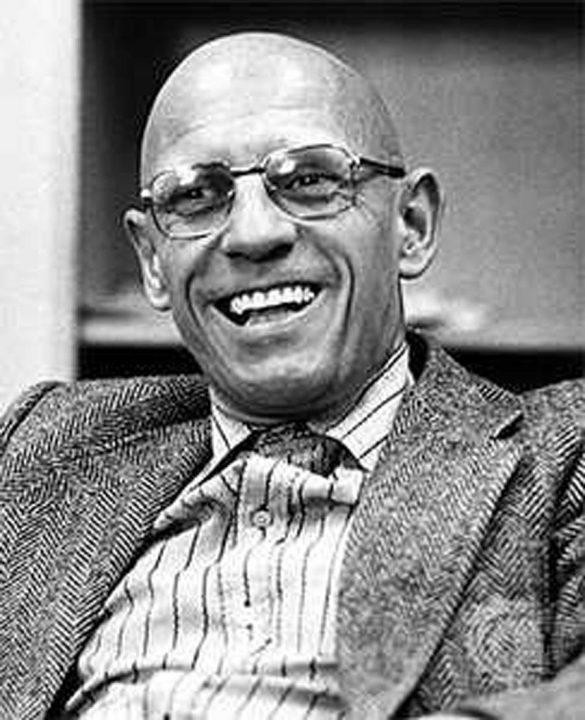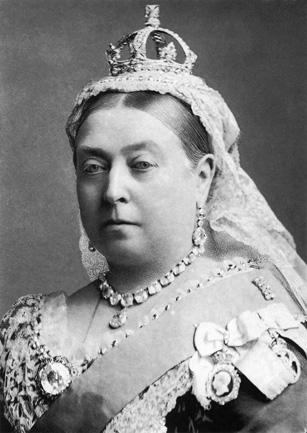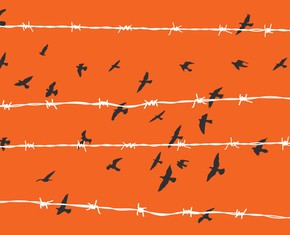The views expressed in our content reflect individual perspectives and do not represent the authoritative views of the Baha'i Faith.
These two important quotations from Baha’u’llah, both written in the 19th century when many nations still upheld that inhumane institution, abolished the practice of slavery:
It is forbidden you to trade in slaves, be they men or women. It is not for him who is himself a servant to buy another of God’s servants, and this hath been prohibited in His Holy Tablet. Thus, by His mercy, hath the commandment been recorded by the Pen of justice. Let no man exalt himself above another; all are but bondslaves before the Lord, and all exemplify the truth that there is none other God but Him. – The Most Holy Book.
Glorified art Thou, O Lord my God! Behold how one slave hath stood at the door of another, seeking from him his freedom, and this despite the fact that his owner is himself but Thy thrall and Thy servant, and is evanescent before the revelations of Thy supreme Lordship … All kings are as vassals before the gate of Thy grace, the rich are but destitute at the shore of Thy sacred dominion, and all great ones are but feeble creatures within the court of Thy glorious bounty. How, then, can this thrall claim for himself ownership of any other human being? Nay, his very existence before the court of Thy might is a sin with which no other sin in Thy kingdom can compare. Glorified, immeasurably glorified, art Thou beyond every description and praise. – Prayer of Emancipation, circa 1839.
In this essay we will study Baha’u’llah’s laws that call for the abolition of slavery and his spiritual reasons for that prohibition – the same reasoning that affirms in various ways in the Baha’i teachings the nobility of human beings, the equality of men and women, human rights, political democracy, and social justice, among others.
1. From the Logic of Resemblance to the Logic of Revelation
In his book The Order of Things, The French philosopher Foucault contrasts the logic and epistemology of the past tradition with his own logic. He calls the traditional logic the logic of resemblance. This point has been noted by many other writers as well. The basic idea of the logic of resemblance is that social relations become a copy of the relation between God and the created world. God is superior to the world, sovereign over the world, and master of the world. The epistemology of resemblance extends this same relation to the realm of various social relations. Therefore, the relation of man to woman repeats the relation of God to the world. The relation of master and slave resembles the relation of God to the created beings. The relations between king and subjects, believer and infidels, clerics and the ordinary believers, and parents and children become like the relation of God to his human servants. In other words, the traditional logic of resemblance supports the justification of social hierarchy and various forms of oppression and exploitation.

Since religion is a dialogue between God and humanity, the social laws of the past religions were forced to compromise with this logic of resemblance. In the past, humanity was not yet ready to understand the inherent nobility of all human beings. Institutions like slavery, patriarchy, the autocracy of kings, obedience to the clerics, and legal discrimination between believers and non-believers were culturally perceived as natural and necessary laws of the universe. Therefore, while sacred spiritual texts of the past do contain statements which imply the nobility of all beings, in practice believers were forced to speak in the language of the logic of resemblance. For example, the Gospel repeatedly asserts the logic of resemblance in regard to both slavery and patriarchy:
But I would have you know, that the head of every man is Christ; and the head of the woman is the man; and the head of Christ is God. – First Corinthians 11:3.
For a man indeed ought not to cover his head, forasmuch as he is the image and glory of God: but the woman is the glory of the man. For the man is not of the woman: but the woman of the man. – First Corinthians 11:7-8.
Wives, submit yourselves unto your own husbands, as unto the Lord. For the husband is the head of the wife, even as Christ is the head of the church: and he is the saviour of the body. Therefore, as the church is subject unto Christ, so let the wives be to their own husbands in everything. – Ephesians 5: 22-24.
Servants, be obedient to them that are your masters according to the flesh, with fear and trembling, in singleness of your heart, as unto Christ. – Ephesians 6:5.
However, the spiritual truth of all religions was in fact opposed to such logic – but this truth could not manifest itself in explicit and categorical ways in the past.
What distinguishes the revelation of Baha’u’llah is the belief that humanity has entered a new stage of its spiritual and cultural development, which has made it possible to understand the hidden spiritual truths of the past religions. Baha’u’llah’s logic is the logic of revelation and not resemblance. According to this new logic, humans are defined as spiritual beings. This spiritual nature of humans expresses that all of them are servants of God and in addition, all of them are reflections of divine attributes. Both of these characteristics require that all human beings enjoy equal rights. No one can exalt himself over others because all are nothingness before God – and yet, no one can be inferior to another because all are glorious images of God.
2. Abolishing Slavery
Baha’u’llah was the first Iranian who rejected the institution of slavery, prevalent throughout Iranian history up to 20th century. In fact, denouncing slavery is a constant feature of Baha’u’llah’s revelation.
In his Most Holy Book Baha’u’llah prohibited the buying and selling of humans, and explained the reason for such a prohibition:
It is not for him who is himself a servant to buy another of God’s servants … Let no man exalt himself above another; all are but bondslaves before the Lord, and all exemplify the truth that there is none other God but Him.
His first point is that no servant can buy or sell another servant. In other words, all human beings are the servants of God, nothingness before his court, and slaves in relation to God. This servitude and nothingness of all means that no one has the authority to own another human being.
In the same statement, Baha’u’llah defines the negation of slavery as one implication of his general principle that no one should “exalt himself above another.” But this equality of all human beings is a product of two contradictory human characteristics. Humans are servants and bondslaves of God, and therefore cannot own or be superior to another. At the same time, all humans are equal because all humans reveal the divine attribute of sovereignty, “and all exemplify the truth that there is none other God but Him.”
In this quote humans are defined as Adilla’ – namely, those who reveal, demonstrate, and indicate the sovereignty of God. In other words, humans are reflections of God and therefore they are sacred and glorious. We are all reflections of divine attributes and therefore are all sacred and endowed with equal rights.
The same reason that causes the abolition of slavery in paragraph 72 of The Most Holy Book also abolishes, in paragraph 73, both contention and murder:
Let none contend with another, and let no soul slay another … What! Would ye kill him whom God hath quickened, whom He hath endowed with spirit through a breath from Him.
In paragraph 75 of that same book, Baha’u’llah also did away with the old concept of the “impurity” of various groups of people, as well as the ancient counsel to avoid or shun certain groups:
God hath, likewise, as a bounty from His presence, abolished the concept of “uncleanness,” whereby divers things and peoples have been held to be impure. He, of a certainty, is the Ever-Forgiving, the Most Generous. Verily, all created things were immersed in the sea of purification when … We shed upon the whole of creation the splendors of Our most excellent Names and Our most exalted Attributes.
3. Emancipation as Prayer
Baha’u’llah had rejected slavery long before the revelation of his Most Holy Book in 1873. Five years earlier, in his message to Queen Victoria, he simultaneously rejected slavery and affirmed consultative democracy.

Both of these ordinances are expressions of one and the same spiritual logic of revelation. However, decades earlier, most likely in 1839, Baha’u’llah outlawed slavery in the form of a prayer. In his Prayer of Emancipation, he argued that all humans are themselves slaves of God, and therefore no human can own another human being.
The fact that Baha’u’llah affirmed the emancipation of slaves through prayer is most fascinating. He rejected slavery because humans are all spiritual beings. The fact that we are all servants of God and images of God makes us all sacred, beautiful, equal, and endowed with rights.
For Baha’u’llah, all beings and all existence conduct a continual spiritual dialogue with God. The reality of all beings emerges from that divine dialogue, a conversation between our servitude to God and our glorious reflection of divine attributes. The truth of all beings is a heavenly prayer, and this spirit of prayer transforms the world and transforms the realm of beastly violence into the republic of reason and love.
















Comments
Sign in or create an account
Continue with Googleor